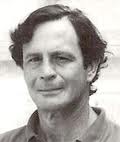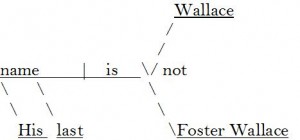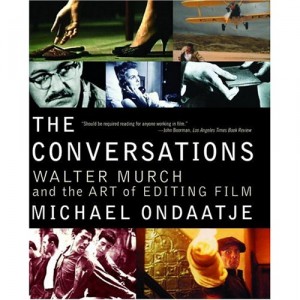 It has taken me a long time to write this, even though I’ve known the whole time what I wanted to say. But there is a story, and there is the reason I want to tell the story, and it is hard to figure out how to make the second one, the reason, count more, both for me and for whoever reads this.
It has taken me a long time to write this, even though I’ve known the whole time what I wanted to say. But there is a story, and there is the reason I want to tell the story, and it is hard to figure out how to make the second one, the reason, count more, both for me and for whoever reads this.
Also, the story involves someone whom people know. Someone I’ve met once, but who I have something like 75  facebook friends in common with. By comparison, my best friend of 25 years and I share only 53 mutual friends. So, there’s this question of whether to say who the someone is. This goes back to the earlier point–it isn’t important who, in terms of why I want to tell this story. I’m not telling this story to call someone out. So, don’t say who it is, right? But then what if people think it is someone who it isn’t, and have resulting feelings about the wrong person? Maybe I should turn comments off? But I don’t want to turn comments off. Not yet. I would like there to be a discussion about what I’m trying to say, but not about who I am talking about. So, please, don’t try to guess; if you do I’ll flag the comment for Blake to delete.
facebook friends in common with. By comparison, my best friend of 25 years and I share only 53 mutual friends. So, there’s this question of whether to say who the someone is. This goes back to the earlier point–it isn’t important who, in terms of why I want to tell this story. I’m not telling this story to call someone out. So, don’t say who it is, right? But then what if people think it is someone who it isn’t, and have resulting feelings about the wrong person? Maybe I should turn comments off? But I don’t want to turn comments off. Not yet. I would like there to be a discussion about what I’m trying to say, but not about who I am talking about. So, please, don’t try to guess; if you do I’ll flag the comment for Blake to delete.
So. Mean Week 2009 was less than a week into when I started writing for HTMLGiant. I hadn’t read it super regularly, and I wasn’t sure what Mean Week was supposed to be, and I did it really wrong and felt really bad feelings. The worst feeling I had came from a horrible, virulently misogynist, hateful, anonymous comment in the form of a beyond-degrading epithet directed toward me. Anonymous meaning the person identified himself by his first name but there was no link attached or anything indicating who the person really was. (See why I am reluctant even NOT to say who it is? By this unspecific description, you might think you know who it is. Like, Jereme Dean uses his first name with no link, and if you didn’t know that I’ve never met Jereme even once, you could think it is him. But it is not. To my knowledge Jereme is not hateful even if he disagrees with people a lot.)
wasn’t sure what Mean Week was supposed to be, and I did it really wrong and felt really bad feelings. The worst feeling I had came from a horrible, virulently misogynist, hateful, anonymous comment in the form of a beyond-degrading epithet directed toward me. Anonymous meaning the person identified himself by his first name but there was no link attached or anything indicating who the person really was. (See why I am reluctant even NOT to say who it is? By this unspecific description, you might think you know who it is. Like, Jereme Dean uses his first name with no link, and if you didn’t know that I’ve never met Jereme even once, you could think it is him. But it is not. To my knowledge Jereme is not hateful even if he disagrees with people a lot.)
 Whatever Mean Week is, this comment was beyond. It isn’t called Hate Week.
Whatever Mean Week is, this comment was beyond. It isn’t called Hate Week.
Again, this was early in my tenure here. I didn’t know the game. I don’t have a thick skin. I’ve always been called sensitive, as if it is a bad thing, and certainly there is this idea that I shouldn’t let things like this get to me, not on the internet, not on HTMLG, certainly not on Mean Week. I disagree. Sure, it may have negative effects on me, but I think it is dangerous to disregard hatefulness. This is why I am telling the story.
Of course, though it affected me and made me cry, I had to somehow get past it, and the way I did this (I thought) was to reason that the person didn’t know me, and didn’t really think of me as a person. Like, in response to another nasty comment directed toward me by someone else, Blake commented (for which I thank him), “would you say this to her face?” This made me feel better about both commenters. They just see my name and don’t really think about that name being attached to a real person with real feelings. They couldn’t.
that the person didn’t know me, and didn’t really think of me as a person. Like, in response to another nasty comment directed toward me by someone else, Blake commented (for which I thank him), “would you say this to her face?” This made me feel better about both commenters. They just see my name and don’t really think about that name being attached to a real person with real feelings. They couldn’t.
I still think that’s true. But here’s the twist: Six months later, I met the person who made the hate comment, and, apologetically, he identified himself as the commenter, and said it wasn’t really about me, or something, and he was sorry.
READ MORE >











Internet Depersonalization Goes Both Ways
Also, the story involves someone whom people know. Someone I’ve met once, but who I have something like 75 facebook friends in common with. By comparison, my best friend of 25 years and I share only 53 mutual friends. So, there’s this question of whether to say who the someone is. This goes back to the earlier point–it isn’t important who, in terms of why I want to tell this story. I’m not telling this story to call someone out. So, don’t say who it is, right? But then what if people think it is someone who it isn’t, and have resulting feelings about the wrong person? Maybe I should turn comments off? But I don’t want to turn comments off. Not yet. I would like there to be a discussion about what I’m trying to say, but not about who I am talking about. So, please, don’t try to guess; if you do I’ll flag the comment for Blake to delete.
facebook friends in common with. By comparison, my best friend of 25 years and I share only 53 mutual friends. So, there’s this question of whether to say who the someone is. This goes back to the earlier point–it isn’t important who, in terms of why I want to tell this story. I’m not telling this story to call someone out. So, don’t say who it is, right? But then what if people think it is someone who it isn’t, and have resulting feelings about the wrong person? Maybe I should turn comments off? But I don’t want to turn comments off. Not yet. I would like there to be a discussion about what I’m trying to say, but not about who I am talking about. So, please, don’t try to guess; if you do I’ll flag the comment for Blake to delete.
So. Mean Week 2009 was less than a week into when I started writing for HTMLGiant. I hadn’t read it super regularly, and I wasn’t sure what Mean Week was supposed to be, and I did it really wrong and felt really bad feelings. The worst feeling I had came from a horrible, virulently misogynist, hateful, anonymous comment in the form of a beyond-degrading epithet directed toward me. Anonymous meaning the person identified himself by his first name but there was no link attached or anything indicating who the person really was. (See why I am reluctant even NOT to say who it is? By this unspecific description, you might think you know who it is. Like, Jereme Dean uses his first name with no link, and if you didn’t know that I’ve never met Jereme even once, you could think it is him. But it is not. To my knowledge Jereme is not hateful even if he disagrees with people a lot.)
wasn’t sure what Mean Week was supposed to be, and I did it really wrong and felt really bad feelings. The worst feeling I had came from a horrible, virulently misogynist, hateful, anonymous comment in the form of a beyond-degrading epithet directed toward me. Anonymous meaning the person identified himself by his first name but there was no link attached or anything indicating who the person really was. (See why I am reluctant even NOT to say who it is? By this unspecific description, you might think you know who it is. Like, Jereme Dean uses his first name with no link, and if you didn’t know that I’ve never met Jereme even once, you could think it is him. But it is not. To my knowledge Jereme is not hateful even if he disagrees with people a lot.)
Again, this was early in my tenure here. I didn’t know the game. I don’t have a thick skin. I’ve always been called sensitive, as if it is a bad thing, and certainly there is this idea that I shouldn’t let things like this get to me, not on the internet, not on HTMLG, certainly not on Mean Week. I disagree. Sure, it may have negative effects on me, but I think it is dangerous to disregard hatefulness. This is why I am telling the story.
Of course, though it affected me and made me cry, I had to somehow get past it, and the way I did this (I thought) was to reason that the person didn’t know me, and didn’t really think of me as a person. Like, in response to another nasty comment directed toward me by someone else, Blake commented (for which I thank him), “would you say this to her face?” This made me feel better about both commenters. They just see my name and don’t really think about that name being attached to a real person with real feelings. They couldn’t.
that the person didn’t know me, and didn’t really think of me as a person. Like, in response to another nasty comment directed toward me by someone else, Blake commented (for which I thank him), “would you say this to her face?” This made me feel better about both commenters. They just see my name and don’t really think about that name being attached to a real person with real feelings. They couldn’t.
I still think that’s true. But here’s the twist: Six months later, I met the person who made the hate comment, and, apologetically, he identified himself as the commenter, and said it wasn’t really about me, or something, and he was sorry.
READ MORE >
February 27th, 2011 / 4:11 pm